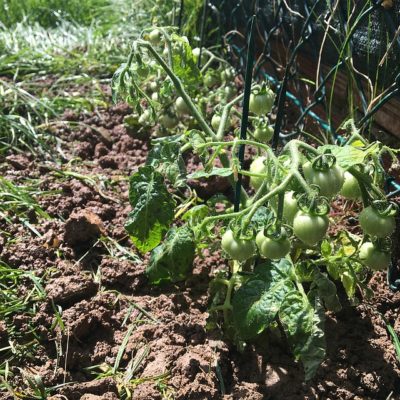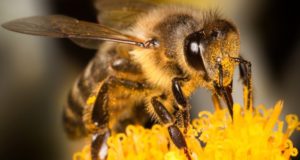We have all grown in our gardening experiences by words of wisdom from those gardeners who have come and gone before us, and we’ve even followed gardeners who have TV shows, blogs and websites dedicated to their art.
Of course, there’s a lot of advice that we’ve accepted that is nothing more than myth. This is not to say the advice is not entirely false, but it is not entirely true, either.
These gardening myths have been around so long that even some of the experts take them to heart.
1. All organic pesticides and sprays are safe.
Although it’s common sense to question how safe a pesticide is, many gardeners take organic pesticides for granted. Most of the time it is safe, but there are some natural ingredients that are just as dangerous, or more so, than commercial chemicals.
All natural fertilizer makes your crops grow like crazy!
Sulphur, for example, was used by early gardeners, but it can be deadly. The same goes for warfarin, sabadilla, rotenone and nicotine, even though they are plant-based. Even pyrethrin, when used long enough, can harm you and your garden. When looking for natural alternatives, be sure to investigate their safety.
2. Fresh vegetables are far more nutritious than frozen or canned vegetables.
Well, how fresh is fresh? It is true that fresh vegetables are healthier for you, but only when they are freshly picked. The vegetables you purchase in the grocery stores usually make quite the trip from the field to the shelves of the store. Sometimes the journey takes several days or even weeks to get to the final destination. Enzymes are naturally being released by the vegetables during storage and shipping, causing the vegetables to lose nutrients and minerals. However, when the produce is fresh-picked and quick-frozen, most of the vitamins, minerals and other nutrients are preserved. This is good to keep in mind for your own garden produce: If you’re not planning on eating your harvest within a short time, don’t delay in preserving it.
3. Kitchen scraps are all you need for compost.
How many of us have compost bins by our gardens, and walk our kitchen scraps out there after each meal? Yet kitchen waste, if that’s all you’re using, is too strong for your garden. You need a mix of leaves (known as brown) and kitchen waste (known as green). There needs to be the correct balance between the two, meaning having more brown than green. The breakdown of these two things creates compost. You can always put extra kitchen scraps into a worm box, or vermicomposter.
4. Watering vegetable plants in the sun will kill them.
How often have we been told this one? It’s definitely one believed by many experts. The most common reason gardeners accept this gardening myth is on the premise that the water acts as a magnifying glass. The sun’s rays will hit the water and they will burn the vegetable plants, especially the leaves.
Seamazing: The Low-Cost Way To Re-mineralize Your Soil
The truth is the water isn’t strong enough to magnify the sunlight enough to the required heat needed to burn the leaves and plants. Now, this doesn’t mean high noon is the perfect time to water your garden. Be reasonable.
5. Organic gardens are more expensive than traditional gardens.
This gardening myth has become more common as people are starting to want more and more organic products and food. Organic produce from any grocery store is more expensive — it’s true. Growing your own organic vegetables are not, however. When you cut out any commercial fertilizers and pesticides, you are saving money. By making your own mulch and compost from scraps and leaves from your yard, you will be saving even more money. Re-use containers and use mixtures of hot soapy water, garlic and hot pepper to keep away unwanted pests. Dead leaves can be used, along with lawn cuttings and scraps, to make fertilizer. Save seeds from your current produce to use for next season. Dry the seeds out and store them in a cool, dry place away from the sun. This is a great way to have a successful garden, as the healthy plants have healthy seeds.
The best way to garden is to do your research and speak to experts and fellow gardeners alike. The more you know, the better your garden will be. You will be able to decide what is true and what isn’t, and your garden will thank you.
What myths would you add to this list? Share your myths in the section below:
Every Spring, Gardeners Make This Avoidable Mistake — But You Don’t Have To. Read More Here.
 Off The Grid News Better Ideas For Off The Grid Living
Off The Grid News Better Ideas For Off The Grid Living





